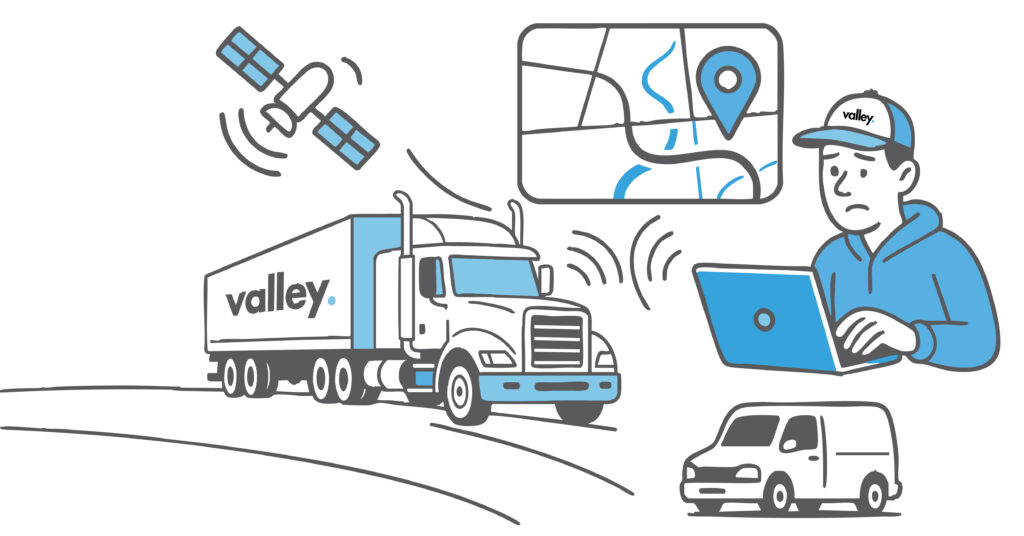How GPS Spoofing Enables Cargo Theft in Modern Trucking Fleets

GPS technology has transformed trucking by enabling fleets to monitor shipments, track vehicles, and improve security. But the same technology that makes operations more efficient is now being exploited by criminals. GPS spoofing is one of the most dangerous tools, allowing thieves to trick tracking systems with false signals. This tactic helps organized cargo theft rings redirect trucks, hide stolen goods, and confuse dispatchers.
Quick Answer
GPS spoofing occurs when criminals broadcast fake GPS signals, making trucks appear to be in the wrong place. This enables thieves to divert loads without triggering standard alarms. Encrypted GPS, backup tracking technologies, and vigilant dispatch monitoring are essential defenses.
Why This Issue Matters
Cargo theft is a billion-dollar problem worldwide, and GPS spoofing is one of the most advanced methods fueling it. Unlike hijackings or thefts from parked trailers, spoofing leverages digital systems themselves. It delays responses, confuses recovery efforts, and gives criminals more time to move stolen goods. As fleets rely more on connected systems, the risks continue to grow. (FreightWaves, Transport Topics).
How GPS Spoofing Works
Spoofing uses small, cheap devices that overpower satellite signals. The process usually looks like this:
- Device activation: A criminal places or activates a spoofing device near the target truck.
- Signal broadcast: The device sends stronger fake signals than legitimate satellites.
- Receiver confusion: The truck’s GPS receiver locks onto the fake signals, showing a false location.
- Dispatcher deception: Tracking dashboards display incorrect positions while the truck is redirected elsewhere.
Real-World Examples
- Europe: Spoofing attacks on trucks carrying electronics and pharmaceuticals redirected shipments worth millions into criminal warehouses.
- Asia: Spoofing near ports tricked container trucks into appearing on course while being diverted to hidden drop points.
- North America: Law enforcement and insurers warn spoofing is growing, especially for high-value loads like alcohol, tobacco, and electronics.
The Impact on Companies
GPS spoofing threatens carriers in several ways:
- Financial losses: High-value loads vanish before problems are detected.
- Operational delays: Dispatchers lose time verifying and correcting false data.
- Insurance disputes: Claims may be challenged if fleets lack modern protections.
- Driver safety: Spoofing can be paired with hijackings, exposing drivers to violence.
Common Mistakes Companies Make
Many fleets underestimate spoofing risks. Common errors include:
- Relying on GPS alone without backup tracking methods.
- Failing to monitor anomalies such as sudden jumps in truck location.
- Not training dispatchers to recognize spoofing signs.
- Ignoring security updates for GPS hardware and software.
How the Industry Can Defend Against GPS Spoofing
Layered defenses are the best response:
- Upgrade GPS security: Use encrypted GPS devices with anti-spoofing features. Cross-check data with cellular signals.
- Layer tracking methods: Combine telematics with RFID, cargo sensors, or Bluetooth trackers. Add geofencing alerts.
- Train dispatchers and drivers: Teach dispatchers to spot anomalies and drivers to report suspicious roadside devices.
- Collaborate with authorities: Share incidents with police, insurers, and industry groups to improve responses.
FAQs on GPS Spoofing and Cargo Theft
Is GPS spoofing common in trucking?
- It is becoming more frequent as devices get cheaper and widely available, especially for high-value shipments.
What’s the difference between spoofing and jamming?
- Jamming blocks GPS signals completely, while spoofing sends fake location data that looks real.
Which cargo types are most targeted?
- Electronics, pharmaceuticals, alcohol, tobacco, and luxury goods are frequent targets.
Can drivers detect spoofing in real time?
- It is difficult, but sudden route changes, impossible jumps in location, or lost dispatcher contact are warning signs.
Does insurance cover spoofing-related theft?
- Yes, but payouts may depend on whether fleets used reasonable protective measures.
Final Thoughts
GPS spoofing is one of the most advanced threats facing modern fleets. By tricking tracking systems, criminals gain valuable time to steal and move cargo. The risks are severe, but fleets can stay ahead with stronger GPS, layered tracking tools, trained teams, and close ties with authorities.
The future of trucking will depend heavily on technology. Carriers must treat cybersecurity and GPS protection as top priorities to safeguard cargo and drivers.
Smarter Coverage. Real Support. No Hassle.
